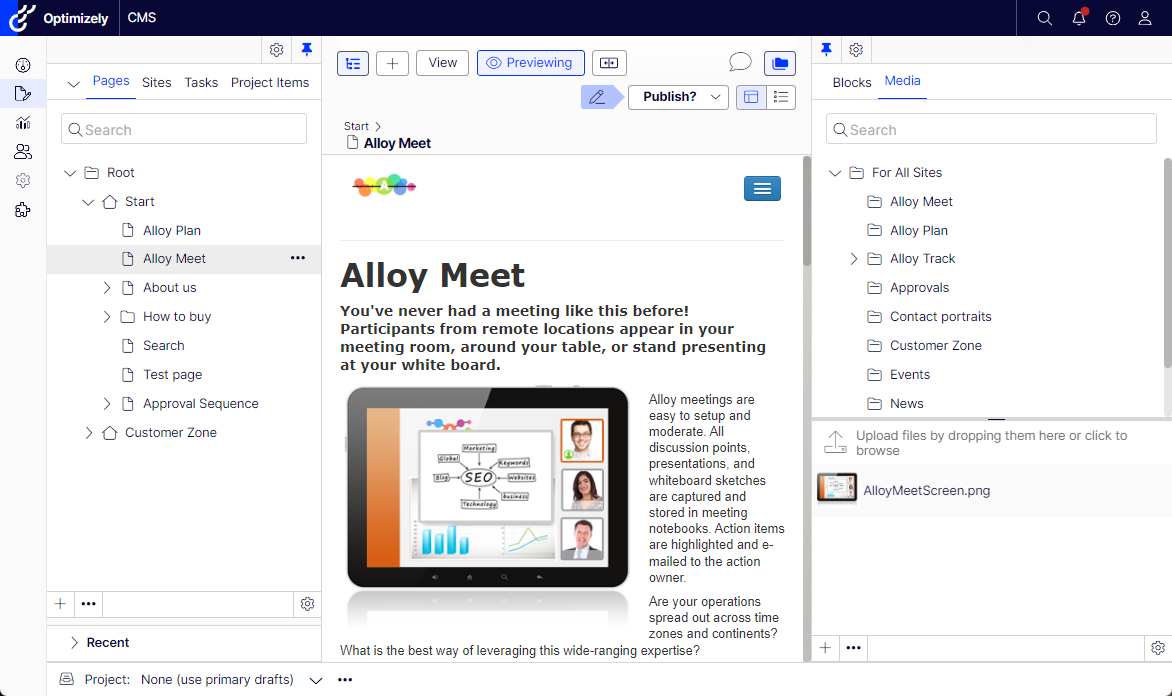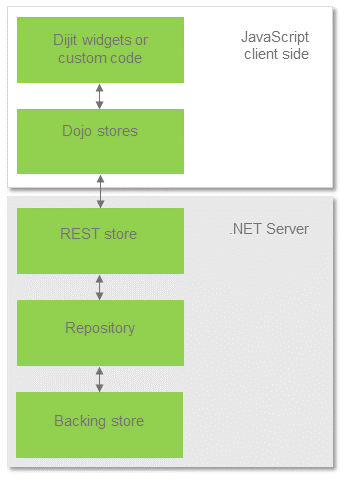Develop the CMS UI
Describes the Optimizely Content Management System (CMS) user interface from a developer's perspective.
The user interface in Optimizely is component-based and pluggable, and the UI framework is used across platform parts. The user interface supports drag-and-drop (DND) functionality based on the DND system in Dojo and extendable navigation for easy access to customized modules from the top global menu. The user interface also supports Dojo Toolkit, including Dijit for widgets and jQuery.

The user interface is based on a framework with a server-side part based on ASP.NET MVC and a client-side part using the JavaScript library Dojo, see Introduction to Dojo. Where possible, the user interface offers context awareness to have the page or user control automatically reload when the context is changed to display customized content.
Creating user interface elements is based on JavaScript and the Dojo toolkit. When the application starts, a user interface definition is retrieved from a REST store on the web server and then instantiated on the client.
The server-side user interface definition, called a view, is declared dynamically, composed from a definition in code or configuration on the server. See Views about working with parts of the user interface API.

Updated 6 months ago
